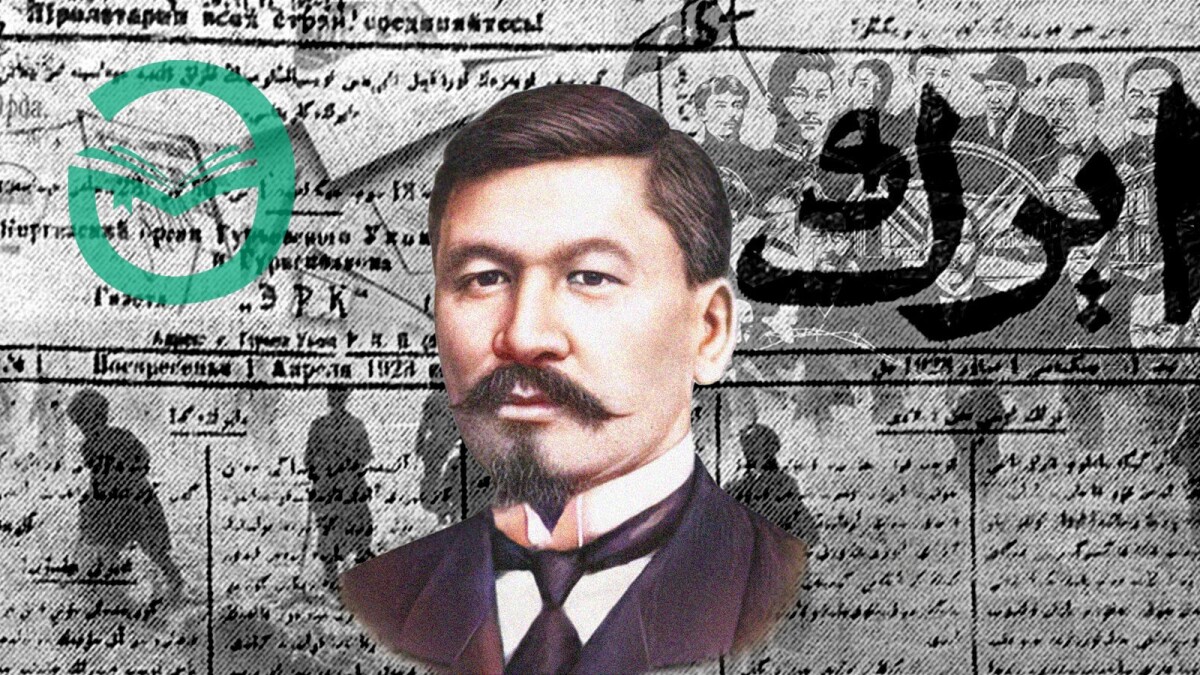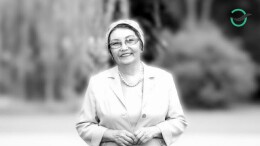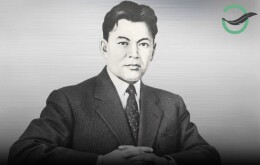Today, it is essential for Kazakhstan to delve into its deep-rooted history and analyze the figures, goals, and aspirations of ancestors who dreamed of national freedom through the lens of its own truth. Studying and analyzing the works of the Kazakh intelligentsia who labored on the path to freedom and fought against colonial and totalitarian regimes is crucial. Among these remarkable figures was Alikhan Nurmukhameduly Bukeikhanov, a cherished leader who, in the early 20th century, devoted himself to the cause of Kazakh independence.
Born on March 5, 1866, in the Karkaraly District of the Semipalatinsk region, he became a prominent activist, founding the “Alash” party and leading the national intelligentsia of that era, urging the Kazakh people towards literacy and advocating for their rights. As he himself once said, “Serving the nation comes from character, not knowledge,” and, from a young age, he was a dedicated and proud advocate for his people. His early education journey began when his father enrolled him at a local madrasa in Karkaraly at the age of nine, yet Alikhan soon recognized the necessity of modern education and switched to a three-year primary school in the area. After completing primary school, he studied at the Karkaraly middle school for Kazakh children until 1886 and later pursued four years of technical education in Omsk. However, his studies at the Faculty of Economics at the St. Petersburg Forestry Institute from 1890 to 1894 had a profound impact on his life and perspectives. In addition to his coursework, Alikhan actively participated in student debates covering political, literary, and economic topics. Through observation of the Empire’s daily life and political environment, he gained a clear understanding of high politics and formed critical views on the Russian Empire. The harsh fate of his people under colonial rule, the state of Kazakh culture, literacy, and independence of thought deeply concerned him. With his well-rounded education and established viewpoints, Alikhan Bukeikhanov dedicated his life to securing freedom for the Kazakh people, uplifting their education, culture, and living conditions.
For many years, his name went unspoken, his contributions depicted as bourgeois-nationalist, and his legacy went underappreciated. However, in recent years, the scientific, literary works, and complex life of this Alash Orda leader have been meticulously examined and made widely known. This work also reviews his efforts and sayings on freedom and independence, analyzing the “United Alash” concept he promoted and comparing it with the modern image of an independent Kazakhstan. The aim of this article is to explore the creative legacy of Alikhan Nurmukhameduly, gain a deeper understanding of his ideals of freedom, and reveal his role in awakening Kazakh society’s consciousness and contributing to its liberation from the Russian Empire.
The idea of freedom in Alikhan Bokeikhanov’s writings
Alikhan Bokeikhanov’s creative activity spanned from the 1890s to the end of his life. His primary work includes translations, literary criticism, articles addressing social issues, and scholarly publications. He saw the awakening of national consciousness and the importance of enlightening the population through literature and education as essential steps on the path to independence. Thus, he not only collected and documented folklore but also translated the literary heritage of other nations to make it accessible to his people. Bokeikhanov fostered connections between the intellectual elite and the public through newspapers and journals, publishing his regular articles and establishing publications such as “Kazakh”, “Zhana mektep”, “Temirkazyk”, and “Bostandyk tuy”. Using pseudonyms like “Kyr balasy”, “Son of the Steppes,” “Kazakh-Steppe Man”, “Arysuly”, “A. B.”, “K. B.”, and “Gh. B.”, he frequently shared his thoughts, research, and translations.
As Bokeikhanov himself said, “The Kazakh people have a right to the son of a khan, if I live, I cannot refuse to serve the Kazakh.” He devoted his entire life to serving the Kazakh people. Thus, all his works can be regarded as dedicated to enlightening his people and advocating for independence. He realized that before achieving autonomy, the people needed to be prepared to live as an independent nation. For this reason, he consistently shared insights into the benefits of science, technology, and the lives of culturally advanced nations with the Kazakh people.
After analyzing the paths other nations took to achieve independence, Bokeikhanov was particularly influenced by the French motto “Liberty, Equality, Brotherhood”. In a 1917 article in “Kazakh”, he wrote, “Liberty, equality, and fraternity are pure concepts from the 18th century. They were introduced by the political leaders of the French nation. All three are rooted in our history, the Bible, the teachings of Buddha, and Leo Tolstoy’s philosophy. There is no path to human happiness and love other than these three principles. Any deviation from them leads to regression.” Here, the national leader emphasizes that independence should be won through intellect and knowledge rather than force.
Journalist and Bokeikhanov scholar Sultankhan Akkululy notes that Alikhan understood independence could only be achieved by transforming Russia into a democratic state: “Alikhan knew that independence could only be possible by reforming Russia into a democratic country. His vision for an independent Kazakhstan was not through armed conflict but through reform. Alikhan was well aware of the reasons behind Kenesary’s defeat and had deeply studied why Kazakhs had become dependent on Russia”[1]. This explains why he was so elated when the Tsarist regime fell in 1917. In his open letter “To the Sons of Alash”, he declared, “The dawn of freedom has arrived. God has granted our wishes. Yesterday we were slaves, today we are equals. The oppressive government that kept all people in bondage for centuries is gone, buried in the grave it dug for others” [2, p 366].
In 1917, writing under the pseudonym “Son of the Steppe”, he warned, “ Kazakh people! Wake up! Don’t get left behind while the Russian peasants forge ahead! As our neighbors enjoy the blessings of freedom, equality, and brotherhood, don’t find yourself circling aimlessly, like a cow struck on the horns, only to fall behind. Don’t let your children become servants or herders to others, bringing misfortune to your descendants and disgrace upon the children of Alash!”.Alikhan urged the people not to willingly enslave themselves to the Russians, who sought to keep the Kazakh people subjugated, labeling them as “ignorant and backward”. Instead, he encouraged his people to work independently and manage their own affairs, calling on them to embrace freedom. For Alikhan, the progress of the common people's knowledge and culture was the most crucial factor in the fight for independence. This belief led him to write articles that urged his nation to raise their heads, defend their rights, and act with integrity in their own enterprises. In his article “Election of the Committee”, he stated, “To our Kazakh people, our wish is this: don’t compete for power; don’t turn authority into a prize! A community without fair leaders cannot be a true community” [2, p384]. In his appeal to “The People of Alash”, he wrote, “A nation bound to a single government, like our Kazakh people, cannot survive by hiding in the shadows. Let’s not tread on the same old mistaken path; let’s follow the path of example, join this great race, and not miss out on our rightful prize—let’s become a true nation!” [2, p394]. He often reminded the people that strong national unity was a powerful weapon against any enemy. In “Kazakh History”, published under the name “The Turkic Child” in the second issue of “Kazakh|” in 1913, he voiced his regret, saying, “Many former leaders spent all their strength and power on internal disputes and conflicts.”
The leader of the Alash movement envisioned Kazakhstan as an independent, democratic nation governed by the people. He expressed this vision in “Kazakh” newspaper's issue 223, stating, “The form of government we desire is a 'democratic republic,' one that allows us to own and work the land, raise livestock, and grow crops” [3, 55b]. Initially, he sought to achieve this goal within Russia’s Constitutional Democratic Party (Kadets). However, the Kadets eventually abandoned certain shared objectives. In his article “Why I Left the Kadet Party”, Alikhan explained his reasons for leaving. Firstly, the Kadets supported the privatization of land, which he feared would lead Kazakhs to lose their land to Russians, similar to what happened to the Bashkirs. Secondly, the Kadets opposed national autonomy, while the Alash movement aimed to secure this for Kazakhs. Lastly, Ali Khan advocated for the separation of religion from the state, citing examples of other countries where clergy who received government funds acted in the state’s interest, rather than impartially. Disagreeing with these positions, he left the party and founded the Alash Party to work according to his principles [3, 79b].
The Alash Party's platform was first announced at the First All-Kazakh Congress in Orenburg on July 21–26, 1917. The program's core principles were freedom, equality, and brotherhood—the values that remain central today, yet the Alash leaders embraced them a century ago. Ali Khan underscored the goal of a federal and democratic Russia, defining democracy as “the people governing the state.” The program included a section on elections, emphasizing, “Representatives shall be elected through universal, equal, direct, and secret voting, with no distinctions based on race, religion, or gender” [3, 42b], showing that equality was treated as a primary concern.
As noted by Alash researcher Tursyn Zhurtbay in his article “Alikhan Bokeikhan and the Unified Alash Idea”, the Alash Party’s national stance was grounded in five main principles. The first was that all land should belong to the state, banning the sale of land and requiring any surplus to be managed by the zemstvo. The second principle asserted that all resources of Kazakh land should belong solely to the Kazakh people. The third was economic independence. Alikhan argued that, “A handful of wool produced on Kazakh soil should be woven into clothing for the state’s citizens,” meaning that Kazakhstan should become a self-sustaining nation capable of generating economic benefits from its own resources. The fourth principle was that, within the Alash Autonomous region, the Kazakh people’s language, culture, and religion should be preeminent. In a Kazakh-established state, the common language should be Kazakh, with the Kazakh mentality and culture given priority. The ultimate goal was to establish a national-democratic state modeled on Japan, based on independent science and laws rooted in national customs and traditions [4].
Alikhan Bokeikhan’s ideas, guided by these principles, remain relevant to this day.
The theme of independence in Alikhan Bokeikhanov’s sayings
Smakhan Tore, the younger brother of national leader Alikhan Bokeikhanov, left behind a handwritten collection in Arabic script comprising 18 notebooks. In these, Smakhan Nurmukhameduly Bokeykhanov expressed his admiration for his elder brother Alikhan, saying, “Alyeke did not benefit himself from his education; he didn’t amass wealth, build a house, live in comfort, or enjoy the life of a traditional Kazakh with his own herd of horses. He lived for ‘My Kazakh, my people!’ He never took bribes, traveled across Kazakh lands, and devoted his life to making the Kazakh people a nation” [3, 7-8b]. Indeed, Alikhan, dedicating his noble life to the path of independence, lived with unwavering integrity. Although he could not see his lofty dream realized during his lifetime, he left behind a rich legacy that continues to nourish his people to this day. His articles and speeches, shared widely among the people, became proverbial, offering unparalleled lessons for future generations of an independent Kazakhstan.
Alikhan Bokeykhanov believed that the primary material wealth of the Kazakhs and the symbol of the nation’s freedom was the land, which he argued should remain under public ownership. As mentioned previously, he opposed private ownership of land, even if held by Kazakhs, saying, “One cannot be indifferent to land; the land question is a vital matter of existence.” Without land, there can be no nation, and without borders, there is no state. For this reason, the Alashorda leader worked tirelessly to safeguard Kazakh land, directing its use for the people’s benefit. He noted, “In Japan, not a single inch of land lies unused; without such meticulous dedication, one would starve to death.” He advised the people to plow the land, sow crops, and graze livestock across the vast steppe, as this would bring self-reliance and strengthen independence.
Alikhan Bokeykhanov believed that freedom would not simply fall from the sky; it had to be fought for. He stated, “Freedom is not gained without struggle; without it, men remain slaves, women remain servants, and no one gains control over their own livestock or destiny!” Here, he did not advocate fighting with fists but rather fighting through justice, education, and peaceful competition. As he put it, “Laws are written for the benefit of people; people are not born to serve the law.” This view suggests that laws should safeguard human rights and individual freedoms, preventing people from becoming victims of unjust laws.
In another statement, Bokeykhanov remarked, “Each era has its own customs. In our time, it’s a matter of fighting for one’s rights. The days of lamenting are over.” Throughout history, many figures have found different ways to respond to the challenges of their times. Alikhan's approach was for people to engage in their rights-based struggle, with human rights held above all else.
“The only path to freedom is through national unity.” Bokeykhanov reached this conclusion after studying Kazakh history and the experiences of independent nations. In a 1913 article in the *Kazakh* newspaper, he noted that past leaders often used their power for personal conflicts rather than for the benefit of the people. Just as the poet Abai lamented, “A land full of insignificant chiefs disrupts the nation’s unity,” it was evident in Bokeykhanov’s time that divisive individuals emerged among Kazakhs, undermining national cohesion.
Bokeykhanov felt profound disappointment over “the barking of the village dogs” (as Ahmet Baitursynov described) and the low level of public awareness among the common people. He once wrote, “If our people do not grasp freedom, equality, fraternity, and politics, they will be left behind on the path of history.” Indeed, both Tsarist Russia and the Soviet government exploited the political ignorance of the Kazakh people to strip them of their wealth and turn a free people into servants. Although full independence was not achieved in his time, the efforts of Alikhan and other national intellectuals to enlighten the people were monumental .
Conclusion
Scholar and Doctor of Historical Sciences Mambet Koigeldiev considers Alikhan Bokeykhanov to be a great leader of Kazakh society, akin to Mahatma Gandhi and Atatürk. We wholeheartedly agree with this assessment as we delve into the life, political struggles, scientific and literary works, and various articles of the leader of the Alash movement. Through examining Alikhan Baitursynov's written heritage, we can appreciate how he contributed significantly to the themes of independence and freedom. His articles have made an immeasurable impact on the cultural development and educational advancement of the Kazakh people. Each of his works provides valuable insight into the life, understanding, and daily realities of the people during the Tsarist and Soviet regimes. Although written a century ago, the ideas of equality and independence of consciousness have endured the test of time and continue to resonate with readers today.
His unified vision of Alash aligns with our current independence and serves as a call for freedom and unity, leaving an indelible mark on Kazakh history and spirituality.
References
1. Sultanhan Akkuly: “It is possible that Abai and Alikhan met in the poet’s lifetime.” Almaty Aksamy, No. 21, February 20, 2010. Link: https://abai.kz/post/3099
2. Alikhan Nurmukhameduly Bokeikhan (1866–1937). Complete Works in 9 Volumes. Compiled by Sultan Khan Akkuly. – Astana: “Saryarka,” 2013. – Kazakh-Russian. Vol. 6 – 520 pages.
3. Ibid. Vol. 7 – 520 pages.
4. Tursun Zhurtbai, “Alikhan Bokeikhan and the Unified Alash Idea.” Link: https://adebiportal.kz/kz/news/view/14447
5. Alikhan Bokeikhan: Son of the Great Steppe // Materials of the City Scientific-Practical Conference // Karaganda, 2019 – 93 pages.
7. Kumganbayev Z. Alikhan Bokeikhanov and Kazakh Newspaper // Society and Era – 2012. No. 4, p. 97-102.
8. Koigeldiev M. The Alash Movement (Supplementary Textbook) – Almaty, “Sanat,” 1995 – 368 pages.
9. The Path of Alash. Risala / B. Koishybayev. – Almaty: “Karatau KB”; “Dastur” Publishing, 2015 – 400












